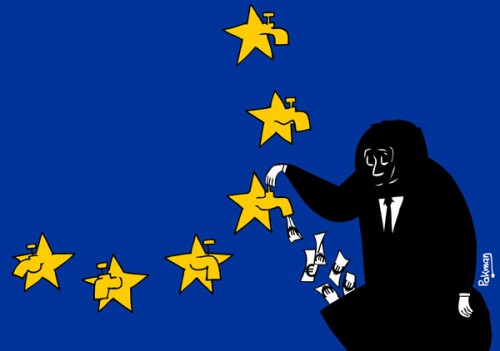by Nikolai von Kreitor
Ex: http://www.amerika.org
The most fundamental principle in geopolitics is the principle of Grossraum (=Great Area) formulated by the prominent German jurist Carl Schmitt in his book Völkerrechtlishe Grossraumordnung mit Interventionsverbot für Raumfremde Mächte (1) and seen by him as a foundation for the science of international law and international relations.
A Grossraum is an area dominated by a power representing a distinct political idea. This idea was always formulated with a specific opponent in mind; in essence ,the distinction between friend and enemy would be determined by this particular political idea. As an example Carl Schmitt cited the American Monroe Doctrine and its concept of non-intervention by foreign powers in the American Raum. “This is the core of the original Monroe Doctrine, a genuine Grossraum principle, namely the union of politically awakened people, a political idea and, on the basis of this idea, a politically dominant Grossraum excluding foreign intervention.”
Carl Schmitt’s knowledge and sense of history were equaled by his ability to define core issues. That ability enabled Schmitt to quickly grasp the essence of national foreign policy , articulate it in his book, relate the idea and implementation of the American Monroe Doctrine to the concept of Grossraum , subject Grossraum to analysis, incorporate it into the framework of international law and contrapose American Grossraum to a new German Grossraum, opposed to and competing with the American. By subjecting Grossraum to scholarly investigation and by placing it in the context of global politics, Schmitt had hoped to enlarge the horizon of learning and to update the state-centered system of international law to include relations between Grossräume (Different Great Areas).(2)
In so doing he subjected the political theology of American expansionism, the American state-policy and objectives of world domination formulated and codified in the Monroe Doctrine and its various extension, to a demystifying and critical analysis showing that the essence of Wilsonian universalism before, during and after the World War II was in fact an insidious ideology to equate American national interest, American expansionism and the principles of the Monroe Doctrine with the interest of mankind(3). Discussing emerging political realities , Schmitt noted that Germany needed to formulate her own Grossraum and to conceptualize the nature of international law as a relationship between different Grossräume, rejecting thereby the universalistic claims of the United States.
The center of Carl Schmitt’s discussion was the geopolitical and the ideological substance of the Monroe Doctrine, especially the series of ideas articulated prior to Theodore Roosevelt’s reinterpretation of it justifying a “capitalist imperialism”(4) and Woodrow Wilson’s reinterpretation that sough to justify a “kind of pan-interventionist world ideology”(5) , i.e. to justify the principles of the Monroe Doctrine and the new international law it created in the Western Hemisphere to principles valid for the whole world. The substance of the new American international law, created by the Monroe Doctrine, was in fact an absence of international law, understood traditionally as law of nations created by mutual consent of those nations, in the Western Hemisphere, since the Monroe Doctrine postulated that the only source of the new international law was the will of the United States. According to Schmitt the Monroe Doctrine, historically seen, was the vehicle of American subjugation of the Latin American countries and transformation of those countries into virtual American protectorates.
President Woodrow Wilson’s objectives at the end of the W.W. I to elevate the principles of the Monroe Doctrine to universally valid principles for the whole world was in fact America’s first bid for world domination. On April 12, 1919, at the Paris Peace Conference , President Wilson assured the delegates that the Monroe Doctrine was “the real forerunner of the League of Nations” and asked rhetorically ,”Indeed are we not assembled here to consecrate and extend the horizon of this document as a perpetual charter for all the world.”(6)
The Monroe Doctrine, that nineteenth-century formulation of American foreign policy, has according to Schmitt a profound relevance for the Germany of his day. Though Schmitt recognized that the realities of power politics in the Western Hemisphere of the nineteenth century were different from those on the European continent of the twentieth century , he realized that the Monroe Doctrine had extended the parameters of international relations. As far as Schmitt was concerned, the Monroe Doctrine was “the first and until now the most successful example of a Grossraum principle”(7) that had over a period of time acquired validity, for it was referred to in every important text and dictionary of international law and was defended by the United States as “an expression of the inalienable right to self-defense”(8) Calling the Monroe Doctrine, i.e. the American expansionism, a “right to self-defense”, clearly showed the substance of American political theology-the ideological justification of U.S. imperialism as well as the equation in the ideology of expansionism with self-defense: an important ideological component that will became a center-peace of American mystification of U.S. expansionism.
Carl Schmitt points out that at the end of the W.W. I, at the Paris Peace-conference which resulted in the Treaty of Versailles and the creation of the League of Nations , United States succeeded to include the Monroe Doctrine in the Article 21 of the League’s Covenant. Inclusion of the Monroe Doctrine in the Article 21 in the League of Nation’s Covenant, which reads “Nothing in this Covenant shall be deemed to affect the validity of international engagements, such as treaties of arbitration or regional understandings like the Monroe Doctrine, for securing the maintenance of peace.” symbolized for Carl Schmitt Europe’s defeat by the United States and the end of the old Jus Publicum European, which had been the foundation for all preexisting international relations. For one thing , the League of Nations, purportedly an universal international organization and predecessor of the United Nations, was excluded from asserting any jurisdictional claims in the American Grossraum, i.e. the Western Hemisphere. Western Hemisphere was excluded from the purview of the League. Thus the United States asserted the pre-eminence of its will and the ordering principles of her Grossraum, i.e. her unrestricted hegemony in the Western Hemisphere, over the League of Nations.
Schmitt emphasizes that before Grossraum could be anchored in international law it had to be legitimized by a political idea. The geopolitical and ideological conviction behind the original Monroe Doctrine, proclaimed in 1823 – the belief that the Americas had to be defended from the “status quo powers of legitimacy”(9) , the Holly Alliance, the European Con-cert formed after the defeat of Napoleon – justified its proclamation and gave it credibility. President James Monroe announced the doctrine in response to rumored intervention in America of the Holy Alliance. The United States justified its policy on the basis of its inalienable right of self-defense , a principle on which international law is found. Hence the declaration warning the members of the Holy Alliance that the United States “would consider any attempt on their part to extend their system to any portion of this hemisphere as dangerous to our peace and safety” and that the U.S. government would “view any interposition for the purpose of oppressing them, or controlling in any other manner their destiny, by any European power in no other light than as manifestation of an unfriendly disposition toward the United States”. As a corollary of the principle of nonintervention, Monroe declared that the United States was committing itself to a policy of non-intervention “in the internal concerns of any European powers.”(10)
Carl Schmitt notes that the Monroe Doctrine , originally proclaimed as a vehicle of defense against interventionism and European colonialism, transformed itself into it’s opposite, becoming the main legal and ideological instrument of American interventionism, expansionism, economic imperialism and colonization of the Western Hemisphere.(11) The language of the Monroe Doctrine lended itself to a political-semantic corruption of the English language: American interventionist policies were still presented as defense, American colonialism was heralded as establishment of democracy, installation of puppet regimes in Latin-America serving their American masters was called a preservation of civilized forms of government, the many repeated American military interventions to keep the puppet regimes in power and to expand American economic penetration – a peace-keeping operations and, quite consistent with what George Orwell would latter call a New Talk, the enslavement of Latin-American countries, their transformation into protectorates was heralded as enlargement of the frontiers of freedom.
The interventionist substance of the Monroe Doctrine was clearly emphasized in 1904, in the so called Roosevelt Corollary pronounced by President Theodore Roosevelt shortly after the Hague Peace Conference the same year. Roosevelt proposed to make an exception to general international law in favor of the Western Hemisphere and this exception were to be made by ” a unilateral American pronouncement , not through a universally agreed amendment to international law.”(12) Roosevelt explicitly rejected the notion that the new international law in the Western Hemisphere could be created through multilateral, inter-American action, instead, Roosevelt asserted, its creation was only through unilateral action by the United States, i.e. the source of the new international law was solely the will of the United States.
“Instead of abolishing intervention in the Western Hemisphere, Roosevelt explicitly sanctioned this practice and claimed for the United States a monopoly of the right to engage in it… Finally the Roosevelt corollary applied to American intervention of all kind and for whatever purpose.”(13) The new international law in the Western Hemisphere, as formulated by Theodore Roosevelt, was in fact an absence of international law, or, to put it in another way, the foreign expansionist policy of the United States was elevated into a quasi international law. Thus the Roosevelt corollary defined the principle of organization and control of geopolitical space under American domination. That principle of domination suspended the operation of general norms of international law and elevated the imperialist will of the United States into the sole normative source. Or, as Secretary of State Olney had earlier expressed it: “United States is the sole sovereign in the Western Hemi-sphere and its will is a fiat.” Carl Schmitt also emphasized the territorial criterion of the Monroe Doctrine for the international law. He noted that the doctrine introduced territorial lines of delineation and demarcation into the body of international law, infused the international law with the concept and substance of geopolitics.
THE CONCEPT OF GERMAN GROSSRAUM
Based on the perception that the Monroe Doctrine provided the precedent for justification for both German and Japanese Grossraum, Schmitt observed that the traditional Eurocentric order underlying international law- relations between and among sovereign states- had been superseded by relations between and among sovereign Grossräume(14) As far as Germany was concerned , her Grossraum consisted, according to Schmitt’s view during the 30-ties, predominantly of Central and Eastern Europe. Though Schmitt failed to define the precise territorial dimensions of Germany’s Grossraum, he cited the Monroe Doctrine as the basis for maintaining that Grossraum in not something abstract and diffuse but contains “recognizable territorial limits”(15).
According to the Monroe Doctrine, Schmitt argued, the leading or hegemonial power is the one that determines the governing political idea for its realm. United States asserted the political idea that it had the hegemonial right to exclude from the Western Hemisphere any foreign power, or any foreign influence. After the end of the Word War I United States also asserted that the newly formed international organization , the League of Nations , was also excluded from asserting any jurisdiction in the Western Hemisphere. Schmitt emphasized that the new German Grossraum , seen by him as analogous to the American Grossraum, should also exclude any foreign interference, and above all American influence, and argued for the proclamation of a Ger-man Monroe Doctrine. Schmitt rejected the false universalist claims of the United States and noted that as a matter of principle non-interference by European states in the affairs of the American continent cannot be justified unless the United States likewise refrains from interference in the affairs of the European continent. In Carl Schmitt’s view geopolitics and international law have been joined in the Germanic Monroe Doctrine underlying the German Grossraum.
Carl Schmitt defined also the concept of a national Grossraum principle by extending his analysis to encompass the Reich . Though “the concept of Grossraum belongs to the concept of Reich (Empire, Realm) , the two are not identical because “not every state or every people within the German Grossraum is part of the Reich”. A Reich, according to Schmitt, “is the leading and sustaining power whose political idea radiates over a specific Grossraum”. And the code that governs relations between Grossräume is that of nonintervention.(16) Schmitt asserted that in the middle of Europe the German Reich faces the interventionist claims of the Anglo-Saxon pseudo-universalism. Against those claims it contraposes the principle of national life style “based on the principle of national respect.”(17)
Whereas relations between Grossräume were to be governed by the principle of nonintervention , intra-Grossraum relations in Schmitt’s construct were to be based on respect for every nation and nationality. Although in Schmitt’s configuration this connoted a policy of domination exercised without the need to resort to the extraordinary means of intervention , decision about whether to intervene, reflecting power-political realities, would not be made in any capital of the German Grossraum other than Berlin. One possible justification for intervention in a nation in the Reich was that it pursued foreign policy goals inimical to the security interests of Germany. In another work Carl Schmitt defines the Reich as “the leading and supporting powers whose political idea is radiated over a specified major territory and which fundamentally exclude the intervention of extra-territorial powers with regard to this territory.”(18)
It should be noted that Carl Schmitt, while recognizing that the historically changing world order and nature of international relations necessitated the reformulation of the international law in terms of equal relationship between competing Grossräume, he nevertheless never advocated an unrestricted expansion of a singular Grossraum i.e. geopolitical objectives of total world hegemony by for example Germany. Quite to the contrary : the substance of his work Grossraum gegen Universalismus is a strong criticism of the American ideology of universalism and from that ideology derived foreign policy on which U.S. embarked in a limited scope during the presidency of Theodore Roosevelt, and which became the ideological hallmark of the Wilsonianism during and after the World War I.
American universalism , emphasized Schmitt, globalized the principles of the Monroe Doctrine to principles valid for the whole world i.e. to universal principles and thus , ideologically and politically, laid claims for extension of American hegemony in the Western Hemisphere to a hegemony over the whole world. American objectives for world conquest and domination used the ideology of universalism to revise the geographical limitations of the Monroe Doctrine- the very principle of geographical delimitation and demarcation of the concept of Grossraum- and to justify American interventionism in the European continent. While American universalism was a rejection of the idea of co-existence of different Grossräume and thus not only a rejection of the concept of Grossraum with its principles of geographic delimitation but also a claim for global world hegemony, so was also Hitler’s concept of Lebensraum which served as an ideological device for foreign policy objectives of establishment first of German continental hegemony and latter of global world hegemony . In other words there were ideological and geopolitical similarities between Wilson’s universalism and Hitler’s Lebensraum. Both Wilsonian universalism and Nazi-Germany’s Lebensraum were falsification of a genuine Grossraum principle and both universalism and Lebensraum rejected the very notion of international pluralism, of co-existence of Grossräume.
Both universalism and Lebensraum as concepts were antithetical to Schmitt’s concept of territorial limits of Grossraum and both universalism and Lebensraum encompassed no territorial limits serving as ideological justification for global world domination.(19)
In formulating the concept of Grossraum Carl Schmitt wanted to broad the framework of international law to include relations between Grossräume. His concept allowed for the rational conduct of international relations and provided a compelling principle for the international law that would correspondent to new historical realities.
THE RELEVANCE OF THE CONCEPT OF GROSSRAUM FOR RUSSIA
Prior to the dissolution or , I would rather say, subversion of the Soviet Union in 1991, in the bipolar world of two superpowers , there existed two competing Grossräume ( Great Areas) or two opposing political blocks, each with its sphere of influence and thus geographical delimitation and demarcation: the Atlantic Grossraum, dominated by the United States, and the Eurasian Grossraum, dominated by the Soviet Union. The political competition between the two blocks gave a substantial latitude for autonomy and independence for countries included in the sphere of influence of the two blocks. However after 1991 a completely new world order has been created. The bipolar world landscape of two superpowers has been transformed into a mono landscape of one superpower imposing its will on the rest of the world. The concept of a New World Order, propounded first by President Bush and now implemented by the neo-Wilsonian foreign policies of President Clinton, must be seen as a realization and assertion of the principles on the Monroe Doctrine to principles valid for the whole world, or, in other words, as a Roosevelt corollary for the whole world, with a new international law equated with the U.S.’s will. The globalization of the Monroe Doctrine , the pronouncement of the Bush/Clinton corollary is the assertion of the legitimacy of American intervention in the world for whatever purposes United States deem necessary, in other words , it is the equation of the United States will with grounds for intervention, an equation which is not only a radical repudiation of the priciples of non-intervention contained in the United Nations Charter, and thus a repudiation of the essence and substance of the United Nations, but is also the substance of the new international law of the New World Order. In the post-Cold War political landscape , United States, invoking and asserting her principles of legitimacy of American world-wide hegemony , is in a position visavi Europe similar to the position of the former Holy Alliance visavi America in the past. American intrusion into the Eurasian geopolitical vacuum after the demise of the Soviet Union, has necessitated a formulation and implementation of a global policy of pseudo-universalism and intervention. Therefore an absolute geopolitical necessity for Russia now, tantamount to her national survival, is the re-establishment of her Grossraum, which is a prerequisite not only for the future independence of Russia but also for the independence of other European countries as well. Re-establishment of the Russian Grossraum and a necessary new geopolitical alliance, which one my symbolically call “a second Treaty of Rapallo”, will be the beginning of disintegration of the global system of American universalism and interventionism and thus a necessary prerequisite for the rebirth of America-free Europe. During the interwar years, in the Europe after the Treaty of Versailles , Carl Schmitt, observing the universalist claims of international law of American and British imperialism, asserted that “behind the facade of general norms of international law lies, in reality, the system of Anglo-Saxon world imperialism”(20)
Today, observing the new American expansionism, the American invasion in the geopolitical vacuum of the Eurasian Grossraum, the decline and fall of the United Nations and the perversion of this international body into a legitimacy facade for the United States bid for world conquest and hegemony in the New World Order , one may say, as it was said once before by Carl Schmitt , that behind the facade of general norms of international law , lies now in reality the system of American world imperialism and expansionism. For the substance of the New World Order is the globalization of the American hegemony without any geographical limitations, the triumph of the old Wilsonian universalism or the neo-Wilsonian policies of President Clinton, a universalism that is a radical rejection of the notion of peaceful co-existence of Grossräume, of a pluralistic world order build on respect for existing state sovereignties.
The primary foreign policy objective of Russia must be the formulation of her own Monroe Doctrine, geographically delimiting Russian Grossraum, which would exclude the intervention on foreign powers and above all the United States.
A formulation of a Russian Monroe Doctrine implies by necessity a rejection of the pseudo-universalist claims of the American New World Order and the validity of a new international law that legitimizes that order. It also implies a firm rejection of American legal nihilism and revisionism, it mandates a restoration of a world order codified by the Helsinki Accord. Thus a Russian Monroe Doctrine will be an expression of a genuine and inalienable right to self-defense against American expansionism and it’s new territorial ambitions. Integral to the purpose of self-defense must be a Russian claim for respect for Russian minorities in any state where they are to be found as well as prevention of foreign policy inimical to the security interest of Russia , such as membership in NATO , prevention of coming into power of governments serving as agents of foreign power , in short , of governments of American Quislings.
The geographical delimitation of the Russian Grossraum is the territory of the former Soviet Union, countries belonging to the former socialist block , including Yugoslavia, now subjected to a war of aggression by the United States.
A Russian Grossraum can only be a genuine, geographically delimited Grand Area and the international law it would create will be, according to Carl Schmitt’s visions, an international law encompassing the co-existence of Grossräume and thus a rejection of the international law of the New World Order- the universalization of American principles of legitimization of global and unlimited American expansionism and domination. A peaceful co-existence of Grossräume can hardly be achieved without the geopolitical expulsion of the United States from Eurasia.
In the past the United States has been successful in theologization of American geopolitical objectives of world domination – the ideology of Wilsonian pseudo universalism-and demonization of geopolitical competitors and thus rejection of the very notion of geopolitical pluralism. The restoration of the Russian Grossraum is therefore the only guaranty for international peace and renewed respect for international law, constructed not as the will of the United States but as the collective will of sovereign countries and geopolitical blocks. Russian Grossraum is the only guaranty against the future anti-utopia of a Monroe Doctrine for the whole world.
The historical necessity and actuality of a new Russian Grossraum, excluding American interference in Eurasia, confluence with Charles de Gaulle’s vision of a free Europe from Atlantic to Urals and beyond to Vladivostok, which could only exist as America-free Europe. Without a reconstitution of a Russian Grossraum, the future not only of Russia but also of other European countries, will be the present of Latin America. In other worlds, the historical necessity of a Russian Grossraum is a decision for a future of freedom and national and cultural authenticity, a decision against the future as American protectorate. And again, the Russian choice is also the choice of Europe.
ENDNOTES
(1) Carl Schmitt -Völkerrechtliche Grossraumordnung mit Interventionsverbot für Raumfremde Mächte- Ein Bitrag zum Reichsbegriff im Völkerrecht (Duncker & Humblot, Berlin, 1991)
(2) some authors trace the concept of Grossraum in earlier writings of Friedrich Naumann and others. “According to their concept of Mitteleuropa , modern political, economic, and technological considerations necessitated the creation of a German empire in the center of Europe that would allow Germany to survive in a world dominated by political units larger than a typical European nation-state, namely Russia, the British Empire , and the United States..Raumtheorie was first established as a specialized field of study in the twenties , when it became an integral part of the developing sciene of geopolitics” -see Joseph W. Bendersky-Carl Schmitt (Princeton University Press, Princeton, 1983) – at p. 251
(3) Carl Schmitt – Grossraum gegen Universalism in Positionen und Begriffe im Kampf mit Weimar- Genf- Versailles 1923-1939 (Duncker & Humblot , Berlin , 1988)
(4) Carl Scmitt -Völkerrechtlische Grossraumordnung – ibid. p. 37
(5) Carl Schmitt- Völkerrechtlische Grossraumordnung- ibid. pp 38-39
(6) Stephen Bonsal -Unfinished Business (New York, 1944) pp. 184-185; also Arthur P. Whitaker-The Western Hemisphere Idea (Cornell University Press, New York, 1954) at p. 125
(7) Carl Schmitt- Völkerrechtlische Grossraumordnung- ibid. p. 23
(8) Carl Schmitt- Völkerrechtlische Grossraumordnung- ibid. pp. 17, 19, 27-30
(9) Carl Schmitt- Völkerrechtlische Grossraumordnung- ibid. p. 34
(10) see Thomas A. Bailey – A Diplomatic Hisstory of the American People (Englewood Cliffs, N.J., 1980), pp. 183-184
(11) see Carl Schmitt -Völkerrechtliche Formen des modernen Imperialismus in Schmitt Positionen und Begriffe
(12) Arthur P. Whitaker- The Western Hemisphere Idea -ibid. – p. 100
(13) Arthur P. Whitaker- The Western Hemisphere Idea -ibid. – p. 100
(14) Carl Schmitt – Volkerrechtliche Grossraumordnung- ibid. p. 76, 77, 81
(15) Carl Schmitt – Volkerrechtliche Grossraumordnung- ibid. p. 16
(16) Carl Schmitt – Volkerrechtliche Grossraumordnung- ibid. p. 66
(17) Carl Schmitt – Volkerrechtliche Grossraumordnung- ibid. p.71
(18) Carl Schmitt – Der Reichbegrif in Völkerrecht in Positionen und Begriffe – ibid. at p. 303
(19)in fact American universalism can be seen as Lebenraum for American economic imperialism
(20)Carl Schmitt – Völkerrechtliche Formen des modernen Imperialismus ibid. p.43



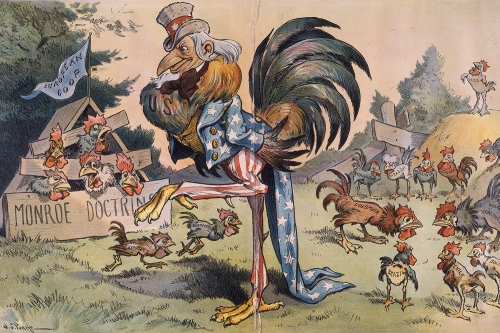
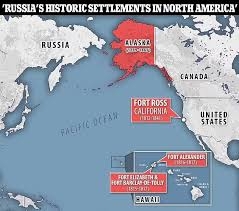
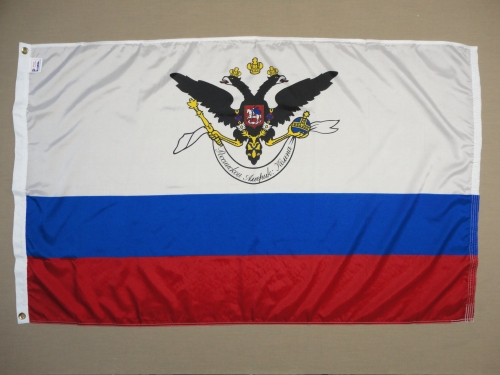
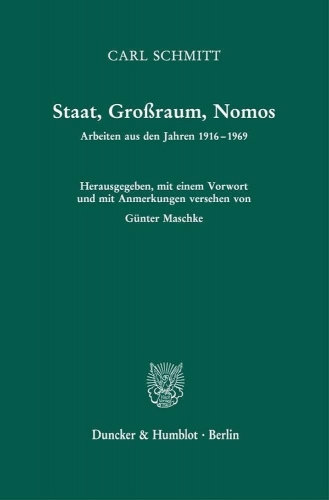 Lorsque, durant la période entre-deux-guerres, avant la Seconde Guerre mondiale, Carl Schmitt a repris le paradigme de cette doctrine, il a tenté de l’adapter à l’époque, suggérant que la paix pourrait être maintenue si l’on reconnaissait un droit des peuples appartenant à un grand espace (Grossraum), aligné sur un hegemon compatible culturellement et politiquement.
Lorsque, durant la période entre-deux-guerres, avant la Seconde Guerre mondiale, Carl Schmitt a repris le paradigme de cette doctrine, il a tenté de l’adapter à l’époque, suggérant que la paix pourrait être maintenue si l’on reconnaissait un droit des peuples appartenant à un grand espace (Grossraum), aligné sur un hegemon compatible culturellement et politiquement. 
 del.icio.us
del.icio.us
 Digg
Digg
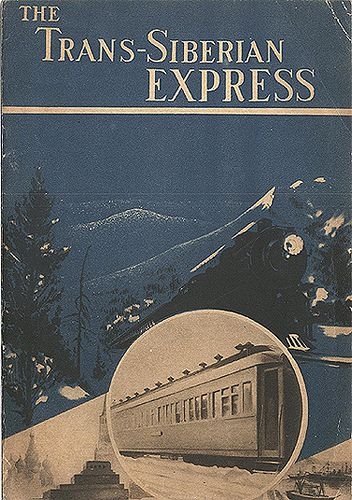


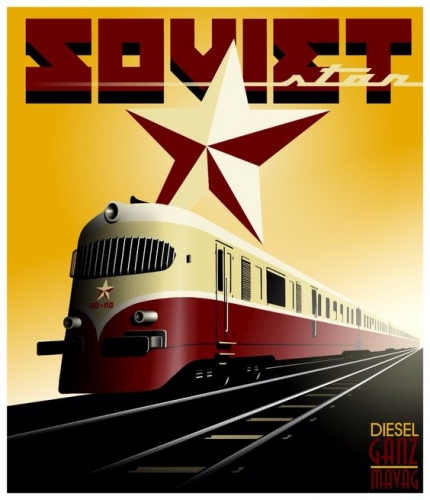

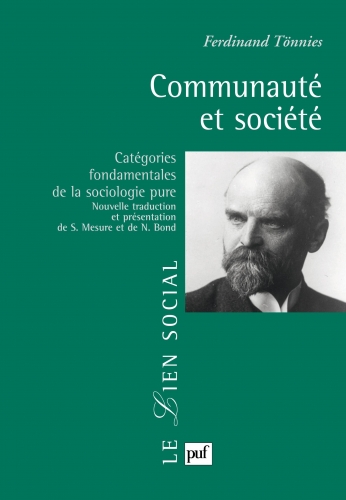
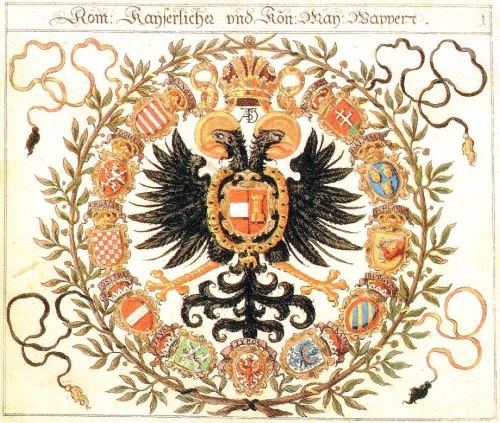
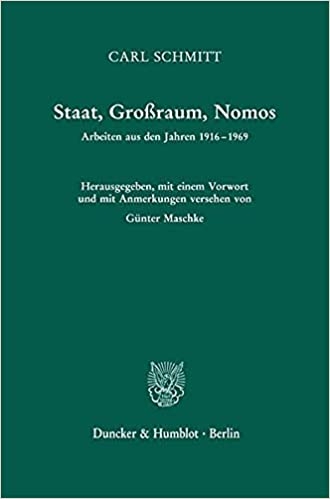
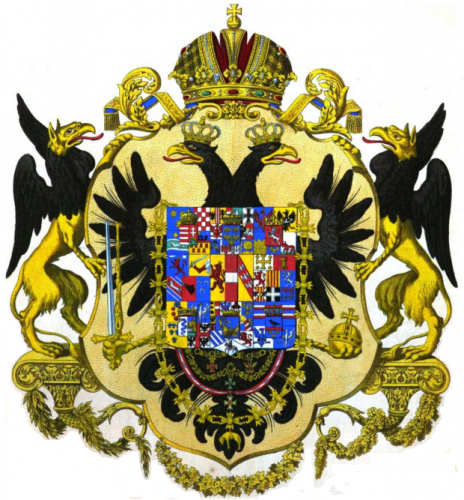

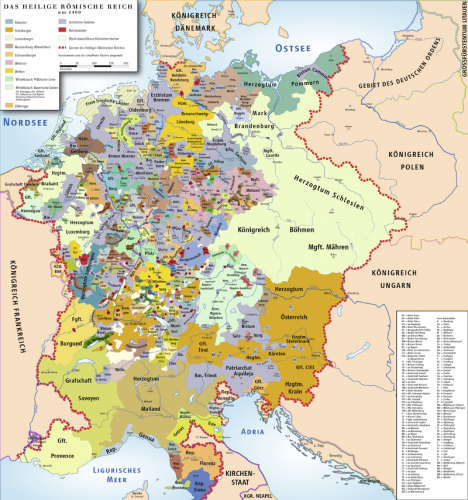
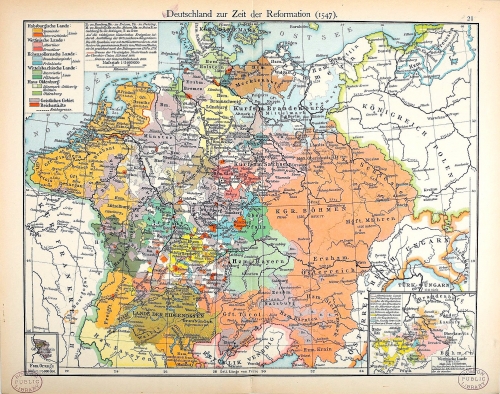
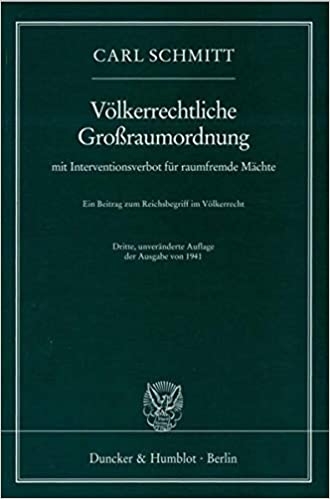 Die Kartenbilder der „Königin Europa“ aus dieser Zeit legen Zeugnis davon ab. Wie widerständig diese Ordnung war, können wir daran erkennen, dass sie sogar den für die Deutschen katastrophalen 30 Jährigen Krieg überlebte und erst von Napoleon, dem Nationalstaat und der Aufklärung zu Fall gebracht wurden. Soviel zur Geschichte des Reiches – doch inwiefern kann es ein Modell für die Zukunft sein? Wie der konservative Revolutionär Carl Schmitt in seiner Schrift zum „Nomos der Erde“ darlegte, haben die Europäer durch ihren Versuch im Rahmen des modernen Kolonialismus die ganze Welt europäisch zu machen ihr eigenes Wesen verloren. Mit dem Ende des Zweiten Weltkriegs ist es auch als eigener politischer Pol verschwunden und zum Spielball fremder Mächte geworden. Schmitt argumentiert hier wie schon in seiner 1941 erschienen Schrift zur „Großraumordnung mit Interventionsverbot für raumfremde Mächte“ für die Schaffung eines europäischen Großraumes, der in seinem Wesen dem mittelalterlichen Reich gleichkommt.
Die Kartenbilder der „Königin Europa“ aus dieser Zeit legen Zeugnis davon ab. Wie widerständig diese Ordnung war, können wir daran erkennen, dass sie sogar den für die Deutschen katastrophalen 30 Jährigen Krieg überlebte und erst von Napoleon, dem Nationalstaat und der Aufklärung zu Fall gebracht wurden. Soviel zur Geschichte des Reiches – doch inwiefern kann es ein Modell für die Zukunft sein? Wie der konservative Revolutionär Carl Schmitt in seiner Schrift zum „Nomos der Erde“ darlegte, haben die Europäer durch ihren Versuch im Rahmen des modernen Kolonialismus die ganze Welt europäisch zu machen ihr eigenes Wesen verloren. Mit dem Ende des Zweiten Weltkriegs ist es auch als eigener politischer Pol verschwunden und zum Spielball fremder Mächte geworden. Schmitt argumentiert hier wie schon in seiner 1941 erschienen Schrift zur „Großraumordnung mit Interventionsverbot für raumfremde Mächte“ für die Schaffung eines europäischen Großraumes, der in seinem Wesen dem mittelalterlichen Reich gleichkommt. 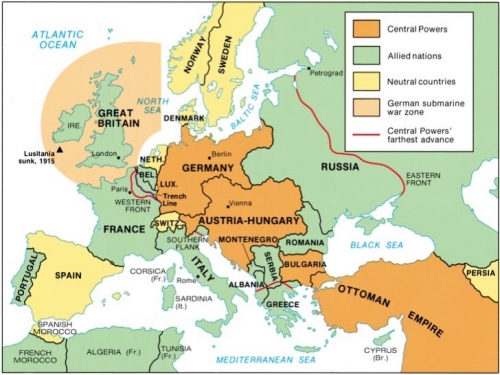
 Ce paradigme spatial apparaît très explicitement dans la doctrine Monroe de 1823. Cette théorie américaine revendique l’indépendance de tous les Etats américains, interdit leur colonisation par des Etats tiers et défend à ceux-ci d’intervenir en leur sein. Elle crée donc un corpus de règles ayant vocation à s’appliquer à un grand espace qui est l’espace américain. La difficulté réside dans le fait que la doctrine Monroe a évolué avec le temps. Elle est passée d’un non-interventionnisme catégorique à un impérialisme intransigeant, d’une neutralité à une position morale donnant le droit de s’ingérer dans les affaires des pays du monde entier. « L’aversion de tous les juristes positifs contre une telle doctrine est bien compréhensible ; devant pareille imprécision du contenu normatif, le positiviste a le sentiment que le sol se dérobe sous lui », ironise l’auteur. En fait, les américains ont modifié leur interprétation de la doctrine Monroe au fil du temps et de leurs intérêts. La raison d’Etat se passe facilement des débats juridiques car contrairement à ce que de nombreux juristes pensent, dans la lignée du positivisme juridique, le droit ne créé rien. Il est simplement le reflet d’un rapport de forces. Les marxistes le désigneraient comme étant une superstructure.
Ce paradigme spatial apparaît très explicitement dans la doctrine Monroe de 1823. Cette théorie américaine revendique l’indépendance de tous les Etats américains, interdit leur colonisation par des Etats tiers et défend à ceux-ci d’intervenir en leur sein. Elle crée donc un corpus de règles ayant vocation à s’appliquer à un grand espace qui est l’espace américain. La difficulté réside dans le fait que la doctrine Monroe a évolué avec le temps. Elle est passée d’un non-interventionnisme catégorique à un impérialisme intransigeant, d’une neutralité à une position morale donnant le droit de s’ingérer dans les affaires des pays du monde entier. « L’aversion de tous les juristes positifs contre une telle doctrine est bien compréhensible ; devant pareille imprécision du contenu normatif, le positiviste a le sentiment que le sol se dérobe sous lui », ironise l’auteur. En fait, les américains ont modifié leur interprétation de la doctrine Monroe au fil du temps et de leurs intérêts. La raison d’Etat se passe facilement des débats juridiques car contrairement à ce que de nombreux juristes pensent, dans la lignée du positivisme juridique, le droit ne créé rien. Il est simplement le reflet d’un rapport de forces. Les marxistes le désigneraient comme étant une superstructure.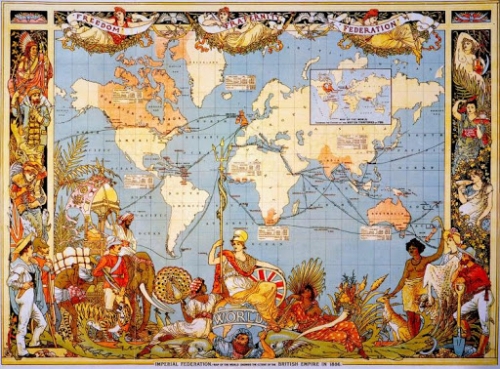
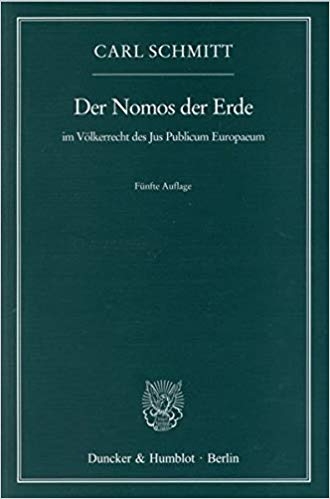 Ouvrage court mais très exigeant, Le droit des peuples réglé sur le grand espace constitue une bonne introduction à l’ouvrage majeur Le nomos de la terre qu’écrira par la suite Carl Schmitt. Ecrit dans un style toujours clair sans être universitaire, le livre présente le grand mérite d’être en avance sur son temps. A une époque où l’on réfléchissait encore en termes de nation, il anticipe largement les grandes évolutions du monde. Aujourd’hui, comment nier que le monde est traversé par une logique de blocs animés par une puissance dominante. L’espace américain est dominé par les Etats-Unis, l’espace asiatique par la Chine et l’espace eurasiatique par la Russie. Il n’y a guère que l’Europe qui ne suit pas cette évolution. En effet, au lieu de s’ancrer dans son espace culturel et religieux, elle a préféré se dissoudre dans un système technico-économique abstrait sous-tendu par les inévitables droits de l’homme. A trop nier l’espace, on finit par nier l’homme comme produit d’un enracinement culturel pour aboutir à l’homme-marchandise.
Ouvrage court mais très exigeant, Le droit des peuples réglé sur le grand espace constitue une bonne introduction à l’ouvrage majeur Le nomos de la terre qu’écrira par la suite Carl Schmitt. Ecrit dans un style toujours clair sans être universitaire, le livre présente le grand mérite d’être en avance sur son temps. A une époque où l’on réfléchissait encore en termes de nation, il anticipe largement les grandes évolutions du monde. Aujourd’hui, comment nier que le monde est traversé par une logique de blocs animés par une puissance dominante. L’espace américain est dominé par les Etats-Unis, l’espace asiatique par la Chine et l’espace eurasiatique par la Russie. Il n’y a guère que l’Europe qui ne suit pas cette évolution. En effet, au lieu de s’ancrer dans son espace culturel et religieux, elle a préféré se dissoudre dans un système technico-économique abstrait sous-tendu par les inévitables droits de l’homme. A trop nier l’espace, on finit par nier l’homme comme produit d’un enracinement culturel pour aboutir à l’homme-marchandise.
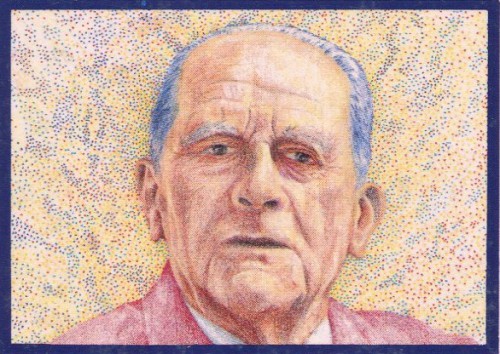
 Carl Schmitt consideraba la tierra como un todo único y buscaba su misión global. Este “todo” fue recogido por Schmitt en el concepto de Nomos. Schmitt usó la palabra griega derivada del verbo «nemein», que es idéntico al alemán “nehmen”, “tomar”. El Nomos comprende tres actos del drama: la “toma”, “la división y distribución de lo tomado”, “la explotación y el uso de lo tomado y distribuido”. Según Schmitt, el Nomos de la Tierra existió siempre. El Primer Nomos es descrito como la “tierra prometida” de los pueblos antiguos. Es el Nomos de la antigüedad y la Edad Media. Dejó de existir después de la exploración de los grandes océanos y el continente americano. Así comenzó el Segundo Nomos, el Nomos de los estados nacionales soberanos que tenían estructura eurocéntrica. Los acontecimientos de la Segunda Guerra Mundial condujeron a su destrucción, por lo que la tierra fue dividida en este y oeste, ambos en un estado de “guerra fría”. No se trata de meros opuestos geográficos, sino de contraposiciones más originales y profundas. Carl Schmitt escribió: “Toda la historia de la confrontación planetaria de Oriente y Occidente en su totalidad es reducible al dualismo fundamental de los elementos: la tierra y el agua, la tierra y el mar. Lo que ahora llamamos el Oriente, es una sola masa de sólida tierra: Rusia, China y la India – un enorme pedazo de tierra, la “Tierra Media” [“Middle Earth”], como es llamada por el gran geógrafo inglés Sir Halford Mackinder. Lo que hoy llamamos Occidente, es uno de los océanos mundiales, un hemisferio donde se sitúan los océanos Atlántico y Pacífico. La confrontación de las potencias, de los mundos marítimo y terrestre, es la verdad global que está en el corazón de la explicación del dualismo de civilizaciones que genera constantemente una tensión planetaria y estimula todo el proceso de la historia”. Por lo tanto, el nacimiento de un tercer Nomos fue causado por la división del mundo entre el Oeste y el Este. Sin embargo, fue destruido con la caída del muro de Berlín y el colapso de la Unión Soviética.
Carl Schmitt consideraba la tierra como un todo único y buscaba su misión global. Este “todo” fue recogido por Schmitt en el concepto de Nomos. Schmitt usó la palabra griega derivada del verbo «nemein», que es idéntico al alemán “nehmen”, “tomar”. El Nomos comprende tres actos del drama: la “toma”, “la división y distribución de lo tomado”, “la explotación y el uso de lo tomado y distribuido”. Según Schmitt, el Nomos de la Tierra existió siempre. El Primer Nomos es descrito como la “tierra prometida” de los pueblos antiguos. Es el Nomos de la antigüedad y la Edad Media. Dejó de existir después de la exploración de los grandes océanos y el continente americano. Así comenzó el Segundo Nomos, el Nomos de los estados nacionales soberanos que tenían estructura eurocéntrica. Los acontecimientos de la Segunda Guerra Mundial condujeron a su destrucción, por lo que la tierra fue dividida en este y oeste, ambos en un estado de “guerra fría”. No se trata de meros opuestos geográficos, sino de contraposiciones más originales y profundas. Carl Schmitt escribió: “Toda la historia de la confrontación planetaria de Oriente y Occidente en su totalidad es reducible al dualismo fundamental de los elementos: la tierra y el agua, la tierra y el mar. Lo que ahora llamamos el Oriente, es una sola masa de sólida tierra: Rusia, China y la India – un enorme pedazo de tierra, la “Tierra Media” [“Middle Earth”], como es llamada por el gran geógrafo inglés Sir Halford Mackinder. Lo que hoy llamamos Occidente, es uno de los océanos mundiales, un hemisferio donde se sitúan los océanos Atlántico y Pacífico. La confrontación de las potencias, de los mundos marítimo y terrestre, es la verdad global que está en el corazón de la explicación del dualismo de civilizaciones que genera constantemente una tensión planetaria y estimula todo el proceso de la historia”. Por lo tanto, el nacimiento de un tercer Nomos fue causado por la división del mundo entre el Oeste y el Este. Sin embargo, fue destruido con la caída del muro de Berlín y el colapso de la Unión Soviética.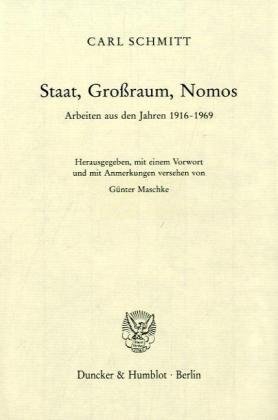 Sin embargo, debemos admitir que durante las últimas décadas, Rusia se alejó cada vez más de su propósito original de ser un puente entre Oriente y Occidente. El interregno puede ser nuestra oportunidad de recuperarse, una oportunidad para Rusia para convertirse y ser. La teoría de un mundo multipolar puede ser considerada como el punto de partida del fin de la era unipolar y el de entrada en el período “post-norteamericano”, una característica del cual será la presencia de varios polos (los sujetos del diálogo inter-civilizacional), y la segura eliminación de la crisis de identidad, porque en un mundo multipolar la identidad adquiere un carácter civilizatorio. Hoy nuestro diálogo con Europa es un diálogo de “grandes espacios”; en el nuevo sistema de relaciones internacionales el Großraum [el “Gran espacio” de Carl Schmitt] se convierte en un concepto operativo de la multipolaridad. Alexander Dugin ofrece el modelo “CUATRO polar” o “cuadri-polar” del mundo, que consta de cuatro zonas.
Sin embargo, debemos admitir que durante las últimas décadas, Rusia se alejó cada vez más de su propósito original de ser un puente entre Oriente y Occidente. El interregno puede ser nuestra oportunidad de recuperarse, una oportunidad para Rusia para convertirse y ser. La teoría de un mundo multipolar puede ser considerada como el punto de partida del fin de la era unipolar y el de entrada en el período “post-norteamericano”, una característica del cual será la presencia de varios polos (los sujetos del diálogo inter-civilizacional), y la segura eliminación de la crisis de identidad, porque en un mundo multipolar la identidad adquiere un carácter civilizatorio. Hoy nuestro diálogo con Europa es un diálogo de “grandes espacios”; en el nuevo sistema de relaciones internacionales el Großraum [el “Gran espacio” de Carl Schmitt] se convierte en un concepto operativo de la multipolaridad. Alexander Dugin ofrece el modelo “CUATRO polar” o “cuadri-polar” del mundo, que consta de cuatro zonas.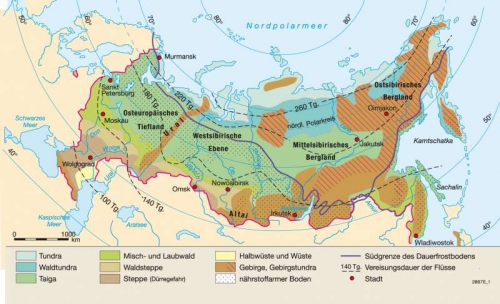
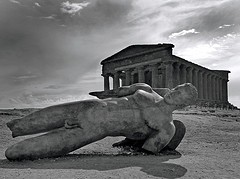 Se habla y se escribe, con la aquiescencia general, de las Europas de los pueblos, de las regiones, de las lenguas, de los negocios. Tempranamente asistimos, ya al erigirse las democracias de Potsdam, a la Europa de los partidos, cuya verdadera dimensión se ha vuelto a poner de manifiesto en fechas recientes con ocasión de la estigmatización antipolítica de la nación austriaca y su gobierno consensualista (1). Hay también la Europa de los políticos de vocación humanitaria y cosmopolita, especie venática en la que se significa un mal profundo de civilización. En este sentido, hace décadas que Europa proclama con contundencia ante el mundo que se arrepiente de sus errores, encarando de la peor forma posible lo que Julien Freund denominó el fin del Renacimiento. Los artistas entremetidos y los intelectuales denunciantes, profesionales de la crítica, piden perdón a los muertos y a los vivos por las consecuencias de la fáustica misión del europeo (2): la aceleración del tiempo histórico, el impacto de la tecnología sobre el aluvión de la vida humana colectiva (la Tradición). El viejo continente, así se ha decidido, es «culpable de los servicios prestados».
Se habla y se escribe, con la aquiescencia general, de las Europas de los pueblos, de las regiones, de las lenguas, de los negocios. Tempranamente asistimos, ya al erigirse las democracias de Potsdam, a la Europa de los partidos, cuya verdadera dimensión se ha vuelto a poner de manifiesto en fechas recientes con ocasión de la estigmatización antipolítica de la nación austriaca y su gobierno consensualista (1). Hay también la Europa de los políticos de vocación humanitaria y cosmopolita, especie venática en la que se significa un mal profundo de civilización. En este sentido, hace décadas que Europa proclama con contundencia ante el mundo que se arrepiente de sus errores, encarando de la peor forma posible lo que Julien Freund denominó el fin del Renacimiento. Los artistas entremetidos y los intelectuales denunciantes, profesionales de la crítica, piden perdón a los muertos y a los vivos por las consecuencias de la fáustica misión del europeo (2): la aceleración del tiempo histórico, el impacto de la tecnología sobre el aluvión de la vida humana colectiva (la Tradición). El viejo continente, así se ha decidido, es «culpable de los servicios prestados». Los problemas del liberalismo y del socialismo están ligados decisivamente a la cuestión de lo político y al problema histórico de las plurales configuraciones de la política como «habitus» (16). En ambas ideologías refléjase con acuidad el destino de la política europea, abocada al utopismo, al moralismo, al abstraccionismo, en definitiva, a la subversión de la tradición de lo Político, que unos denominan «realismo» y otros «liberalismo político» por contraposición al liberalismo ideológico (17). Puede afirmarse, por tanto, que ni el neoliberalismo de Hayek y otros economistas, ni el socialismo postcomunista pueden hoy responder a los verdaderos desafíos de Europa (Cliopolítica, Geopolítica), representados a todos los efectos por la despolitización. Por despolitización de Europa entendemos el abandono de lo Político y no tanto la desideologización de la política europea postulada por Fernández de la Mora (18).
Los problemas del liberalismo y del socialismo están ligados decisivamente a la cuestión de lo político y al problema histórico de las plurales configuraciones de la política como «habitus» (16). En ambas ideologías refléjase con acuidad el destino de la política europea, abocada al utopismo, al moralismo, al abstraccionismo, en definitiva, a la subversión de la tradición de lo Político, que unos denominan «realismo» y otros «liberalismo político» por contraposición al liberalismo ideológico (17). Puede afirmarse, por tanto, que ni el neoliberalismo de Hayek y otros economistas, ni el socialismo postcomunista pueden hoy responder a los verdaderos desafíos de Europa (Cliopolítica, Geopolítica), representados a todos los efectos por la despolitización. Por despolitización de Europa entendemos el abandono de lo Político y no tanto la desideologización de la política europea postulada por Fernández de la Mora (18). En junio de 1961 tuvo lugar en la Facultad de Derecho de Estrasburgo la defensa de la tesis del doctorando F. Rosenstiel. La tesis fue publicada al año siguiente con el título Le principe de supranationalité. Essai sur les rapports de la politique et du droit (28). La obra no despertó el interés que merecía, pero poco después fue preparada la traducción al alemán. En ella tuvo Carl Schmitt una participación puntual y preciosa. El gran jurista había conocido el trabajo de Rosenstiel en una copia que, por mediación de un amigo común, Julien Freund, había recibido a principios de 1961. La impresión que le causó fue honda, hasta el punto de haber considerado la oportunidad de que un prólogo suyo acompañase la edición francesa, aparecida, a la sazón, cuando los alemanes, en palabras del propio Schmitt, temerosos de cualquier decisión en el terreno de la unificación europea, habían hecho de la no decisión una moral: «su opción por la Europa comunitaria constituye una opción a favor del ideal de la no decisión» (29). Aunque Schmitt, finalmente, rehusó escribir el prólogo, la edición alemana conservó, por deseo expreso de Rosenstiel, el subtítulo «fascinante» sugerido por aquel: Supranationalität. Eine Politik des Unpolitischen (30), es decir, La supranacionalidad. Una política de lo impolítico.
En junio de 1961 tuvo lugar en la Facultad de Derecho de Estrasburgo la defensa de la tesis del doctorando F. Rosenstiel. La tesis fue publicada al año siguiente con el título Le principe de supranationalité. Essai sur les rapports de la politique et du droit (28). La obra no despertó el interés que merecía, pero poco después fue preparada la traducción al alemán. En ella tuvo Carl Schmitt una participación puntual y preciosa. El gran jurista había conocido el trabajo de Rosenstiel en una copia que, por mediación de un amigo común, Julien Freund, había recibido a principios de 1961. La impresión que le causó fue honda, hasta el punto de haber considerado la oportunidad de que un prólogo suyo acompañase la edición francesa, aparecida, a la sazón, cuando los alemanes, en palabras del propio Schmitt, temerosos de cualquier decisión en el terreno de la unificación europea, habían hecho de la no decisión una moral: «su opción por la Europa comunitaria constituye una opción a favor del ideal de la no decisión» (29). Aunque Schmitt, finalmente, rehusó escribir el prólogo, la edición alemana conservó, por deseo expreso de Rosenstiel, el subtítulo «fascinante» sugerido por aquel: Supranationalität. Eine Politik des Unpolitischen (30), es decir, La supranacionalidad. Una política de lo impolítico. En el «orden de las soberanías normativamente subordinadas» (supranacionalidad) no halló el autor un verdadero principio federativo. Este se encuentra en un terreno muy distinto de la realidad política: en el «orden de las soberanías integradas», lo que se conoce como «potencia pública federal». Así, mientras que la «supranacionalidad de las comunidades es una afirmación de intención, la supranacionalidad de la federación es una afirmación de poder» (46). Para el autor, el principio federalista constituye un verdadero principio político federativo. En él cifra la posibilidad de una unión verdadera de los Estados europeos, dado que su situación geopolítica sería similar a la de los Estados de América del Norte en vísperas de la Constitución de 1787 (47). Entendido como «técnica jurídica de la democracia», el federalismo es un instrumento político que «se convierte en un modo de vinculación de las soberanías, apto para darles una única convergencia en función de una situación dada» (48). El problema, empero, es la deficiente recepción del ideal federalista, entendido como una doctrina universalista (en el sentido de Proudhon o en el de los partidarios del federalismo integral, por ejemplo), pues eso constituye la antítesis de lo Político. La Federación mundial no tiene más sentido que el Estado mundial. El ecumenismo cataláctico, moralista y religioso tiene su antítesis en el carácter partitivo de lo Político. Dicho de otra manera: para que las actividades económica o religiosa unan, lo Político tiene que separar. En el fondo, el autor ha diagnosticado muy bien la disyuntiva europea: o una supranacionalidad incapaz de adaptarse a las mutaciones en lo Político, o un federalismo funcional o parcial, meramente técnico. Cualquier cosa antes que el federalismo político. A esta especie de indefinición (49) tal vez pueda imputarse el alejamiento de lo Político de la Unión Europea, a pesar de que sus instituciones quieran consagrarse a la defensa de un régimen político concreto -el mismo Rosenstiel, confundiendo la democracia moral y la política, entiende que el federalismo es un «humanismo al servicio de la democracia» (50)-.
En el «orden de las soberanías normativamente subordinadas» (supranacionalidad) no halló el autor un verdadero principio federativo. Este se encuentra en un terreno muy distinto de la realidad política: en el «orden de las soberanías integradas», lo que se conoce como «potencia pública federal». Así, mientras que la «supranacionalidad de las comunidades es una afirmación de intención, la supranacionalidad de la federación es una afirmación de poder» (46). Para el autor, el principio federalista constituye un verdadero principio político federativo. En él cifra la posibilidad de una unión verdadera de los Estados europeos, dado que su situación geopolítica sería similar a la de los Estados de América del Norte en vísperas de la Constitución de 1787 (47). Entendido como «técnica jurídica de la democracia», el federalismo es un instrumento político que «se convierte en un modo de vinculación de las soberanías, apto para darles una única convergencia en función de una situación dada» (48). El problema, empero, es la deficiente recepción del ideal federalista, entendido como una doctrina universalista (en el sentido de Proudhon o en el de los partidarios del federalismo integral, por ejemplo), pues eso constituye la antítesis de lo Político. La Federación mundial no tiene más sentido que el Estado mundial. El ecumenismo cataláctico, moralista y religioso tiene su antítesis en el carácter partitivo de lo Político. Dicho de otra manera: para que las actividades económica o religiosa unan, lo Político tiene que separar. En el fondo, el autor ha diagnosticado muy bien la disyuntiva europea: o una supranacionalidad incapaz de adaptarse a las mutaciones en lo Político, o un federalismo funcional o parcial, meramente técnico. Cualquier cosa antes que el federalismo político. A esta especie de indefinición (49) tal vez pueda imputarse el alejamiento de lo Político de la Unión Europea, a pesar de que sus instituciones quieran consagrarse a la defensa de un régimen político concreto -el mismo Rosenstiel, confundiendo la democracia moral y la política, entiende que el federalismo es un «humanismo al servicio de la democracia» (50)-.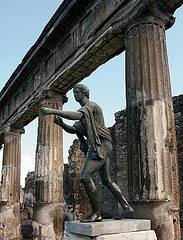 «Tanto desde el punto de vista jurídico como desde el político, la "supranacionalidad" constituye una máquina sin motor» (52). Con esta categórica afirmación el autor pone principio al examen de algunas referencias doctrinales y jurisprudenciales para mejor ilustrar su tesis. No buscó Rosenstiel, en ningún caso, la exhaustividad, pues no es el suyo un tratado de exégesis jurídica. Esto permite, sin violentar la estructura del libro, destacar las contraposiciones que se manejan a lo largo de la obra, pero especialmente en la segunda parte, sobre todo, la dialéctica entre lo Político y lo Jurídico, asunto que justifica su análisis. No obstante, Rosentiel dejaba aflorar sus opiniones acerca de las relaciones entre lo político y lo técnico, lo político y lo económico y también, naturalmente, las de lo Político con lo Militar.
«Tanto desde el punto de vista jurídico como desde el político, la "supranacionalidad" constituye una máquina sin motor» (52). Con esta categórica afirmación el autor pone principio al examen de algunas referencias doctrinales y jurisprudenciales para mejor ilustrar su tesis. No buscó Rosenstiel, en ningún caso, la exhaustividad, pues no es el suyo un tratado de exégesis jurídica. Esto permite, sin violentar la estructura del libro, destacar las contraposiciones que se manejan a lo largo de la obra, pero especialmente en la segunda parte, sobre todo, la dialéctica entre lo Político y lo Jurídico, asunto que justifica su análisis. No obstante, Rosentiel dejaba aflorar sus opiniones acerca de las relaciones entre lo político y lo técnico, lo político y lo económico y también, naturalmente, las de lo Político con lo Militar.  Tocante a la politicidad de la Unión Europea, resulta obligado referirse, aunque sea en último lugar, a uno de sus aspectos decisivos: el militar. El fracaso de la Comunidad Europea de Defensa (C. E. D.), que podría haber sido el verdadero germen político de la Unión, se debió probablemente a que anunciaba efectos irreversibles en lo Político (59). La C.E.D., en opinión de Rosenstiel, fue rechazada «tanto por los mecanismos que comprendía, como por los efectos de aceleración política que implicaba en breve plazo» (60). En ese momento se frustró y retrasó sine die la posibilidad de una verdadera política exterior europea -tal vez de una doctrina Monroe para el Viejo continente, cada vez más lejana-: «a las sirenas demasiado comprometedoras de la C. E. D. y de la Comunidad Europea se debía preferir la Unión de la Europa Occidental (U. E. O.), instituida por los acuerdos de París de 23 de octubre de 1954» (61). Dicho de otra forma, la C. E. D. chocó con la «lucidez política de los nacionalismos» (62). Las cosas, probablemente, no han cambiado mucho desde que la Asamblea Nacional Francesa rechazase la ratificación de los Protocolos de la Comunidad Europea de Defensa el 30 de agosto de 1954, propuesta por el gobierno de Mendès France.
Tocante a la politicidad de la Unión Europea, resulta obligado referirse, aunque sea en último lugar, a uno de sus aspectos decisivos: el militar. El fracaso de la Comunidad Europea de Defensa (C. E. D.), que podría haber sido el verdadero germen político de la Unión, se debió probablemente a que anunciaba efectos irreversibles en lo Político (59). La C.E.D., en opinión de Rosenstiel, fue rechazada «tanto por los mecanismos que comprendía, como por los efectos de aceleración política que implicaba en breve plazo» (60). En ese momento se frustró y retrasó sine die la posibilidad de una verdadera política exterior europea -tal vez de una doctrina Monroe para el Viejo continente, cada vez más lejana-: «a las sirenas demasiado comprometedoras de la C. E. D. y de la Comunidad Europea se debía preferir la Unión de la Europa Occidental (U. E. O.), instituida por los acuerdos de París de 23 de octubre de 1954» (61). Dicho de otra forma, la C. E. D. chocó con la «lucidez política de los nacionalismos» (62). Las cosas, probablemente, no han cambiado mucho desde que la Asamblea Nacional Francesa rechazase la ratificación de los Protocolos de la Comunidad Europea de Defensa el 30 de agosto de 1954, propuesta por el gobierno de Mendès France. «El hombre, decía Ortega y Gasset, no es libre para eludir la coacción permanente de la colectividad sobre su persona que designamos con el inexpresivo nombre de "Estado", pero ciertos pueblos, en ciertas épocas, han dado libremente a esa coacción la figura institucional que preferían -han adaptado el Estado a sus preferencias vitales, le han impuesto el gálibo que les proponía su albedrío-. Eso y no otra cosa es vida como libertad»68. ¿Cómo se conducirá el europeo en las circunstancias actuales? ¿Podrá cambiar su perspectiva histórica? ¿Se liberará del superestatismo de la Unión Europea? ¿Sabrá, en suma, ser fiel a la tradición europea de lo Político y descubrir en el Grossraum la vida como libertad? La obra de Rosenstiel sigue suministrando, en este sentido, buenos argumentos para la reflexión política sobre el futuro de Europa.
«El hombre, decía Ortega y Gasset, no es libre para eludir la coacción permanente de la colectividad sobre su persona que designamos con el inexpresivo nombre de "Estado", pero ciertos pueblos, en ciertas épocas, han dado libremente a esa coacción la figura institucional que preferían -han adaptado el Estado a sus preferencias vitales, le han impuesto el gálibo que les proponía su albedrío-. Eso y no otra cosa es vida como libertad»68. ¿Cómo se conducirá el europeo en las circunstancias actuales? ¿Podrá cambiar su perspectiva histórica? ¿Se liberará del superestatismo de la Unión Europea? ¿Sabrá, en suma, ser fiel a la tradición europea de lo Político y descubrir en el Grossraum la vida como libertad? La obra de Rosenstiel sigue suministrando, en este sentido, buenos argumentos para la reflexión política sobre el futuro de Europa.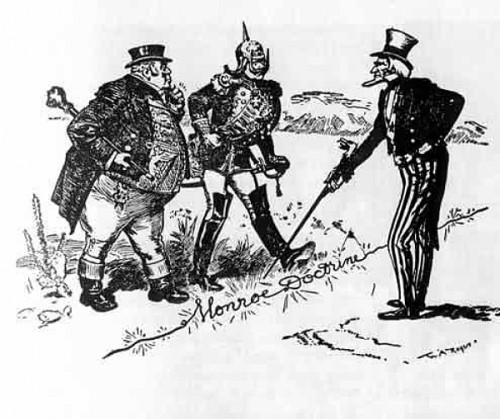
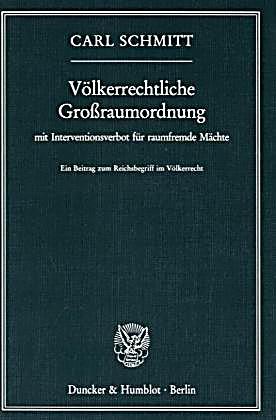 Die französische Regierung möchte nun jungen Afrikanern erlauben, die Schule bereits mit 14 anstatt mit 16 Jahren verlassen zu dürfen, da viele Afrikaner auf französisches Schulwesen ohnehin keinen Bock haben. Auf dem Arbeitsmarkt sollen sie sich dann bereits mit 14 unter die vielen anderen Arbeitslosen tummeln. Daß Arbeitsplätze – gerade im Zeitalter der Automatisierung – beliebig zu vermehren seien, gehört zum Lügengebäude des Liberalismus. Sozial ist deshalb nicht nur, was Arbeitsplätze schafft, sondern was raumfremde Arbeitskräfte – gesetzlich und friedlich – des Landes verweist. Die Lösung kann natürlich nur lauten: Die derzeit ausufernde Entwicklungshilfe ist an die Heimreise junger Afrikaner mit samt ihren Familien zu knüpfen. Schulen und Arbeitsplätze sind für Algerier in Algerien zu schaffen, da macht das Lernen – mit arabischer Unterrichtssprache! – erst richtig Spaß.
Die französische Regierung möchte nun jungen Afrikanern erlauben, die Schule bereits mit 14 anstatt mit 16 Jahren verlassen zu dürfen, da viele Afrikaner auf französisches Schulwesen ohnehin keinen Bock haben. Auf dem Arbeitsmarkt sollen sie sich dann bereits mit 14 unter die vielen anderen Arbeitslosen tummeln. Daß Arbeitsplätze – gerade im Zeitalter der Automatisierung – beliebig zu vermehren seien, gehört zum Lügengebäude des Liberalismus. Sozial ist deshalb nicht nur, was Arbeitsplätze schafft, sondern was raumfremde Arbeitskräfte – gesetzlich und friedlich – des Landes verweist. Die Lösung kann natürlich nur lauten: Die derzeit ausufernde Entwicklungshilfe ist an die Heimreise junger Afrikaner mit samt ihren Familien zu knüpfen. Schulen und Arbeitsplätze sind für Algerier in Algerien zu schaffen, da macht das Lernen – mit arabischer Unterrichtssprache! – erst richtig Spaß.